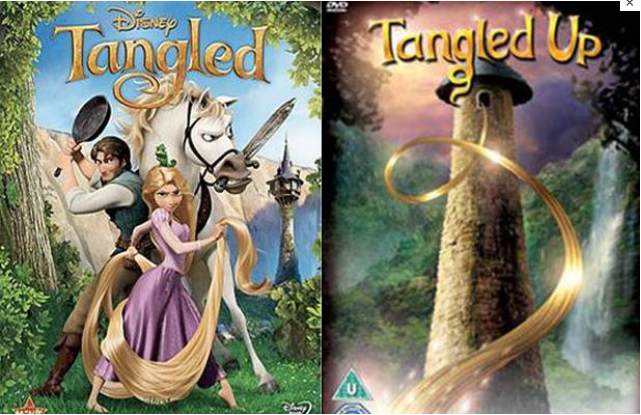Recently they invited me to become a Fellow of the organisation which is actually a charity which dates back to 1754. So I thought I would pop along after work to one of their events. The topic was right up my street, as it was concerned with reviewing the Independent Review of IP and Growth, which is being led by Professor Ian Hargreaves.
Matthew Taylor, the chief executive of the RSA had assembled a panel of experts to consider the not insignificant challenge of how the UK can develop a technology neutral IP Framework which will drive innovation and growth by serving consumer-led markets, technology companies, and research and education, as well as the creative industries.
Given the immensely complex nature of copyright (which was the dominant theme of the evening) and the strongly held opposing views of the audience, I was impressed by how Mathew Taylor managed to keep the event in good humour and to time.
John Howkins, chairman, BOP Consulting and past director of the Adelphi Charter on Creativity, Innovation and Intellectual Property
IP for Innovation and Growth at the RSA London 2 March 2011Last night was my first event at the Royal Society for the Arts, Manufactures and Commerce ??? or RSA for short. Link???
Recently they invited me to become a Fellow of the organisation which is actually a charity which dates back to ???. Link??? So I thought I would pop along after work to one of their events. As it turned out the topic was right up my street, as it was concerned with reviewing the Independent Review of IP and Growth, which is being led by Professor Ian Hargreaves.
Matthew Taylor, the chief executive of the RSA had assembled a panel of experts to consider the not insignificant challenge of how the UK can develop a technology neutral IP Framework which will drive innovation and growth by serving consumer-led markets, technology companies, and research and education, as well as the creative industries.
The RSA is particularly interested in this topic as in 2005 it published the Adelphi Charter, which called for a new deal on IP for the digital age. Link???
Given the immensely complex nature of copyright (which was the dominant theme of the evening) and the strongly held opposing views of the audience, I was impressed by how Mathew Taylor managed to keep the event in good humour and to time.
Here are my notes from the evening:
Ian Hargreaves, professor of digital economy, the Cardiff School of Journalism
The Adelphi Charter calls for a balance between commercial interests and public rights. This should be preserved.
The digital market-place is a troubled place, and a single government review will not be able to calm the waters.
The Government’s aim is to boost the digital economy, but economics should not be the only consideration.
John Howkins, chairman, BOP Consulting and past director of the Adelphi Charter on Creativity, Innovation and Intellectual Property
Historically, the study of copyright has been seen in terms of legal rights rather than commercial ones.
6 months is too short a time to undertake an effective enquiry.
The emphasis on economic matters is in danger of pushing out social and cultural interest.
We require a strong body which can take a view on IP issues.
Governments should stop using ‘bungee jump’ approaches to IP policy. Copyright is just too important to be managed in this way.
The IPO needs to do more research into IP on a sustained basis.
We are in danger of being overtaken by WIPO.
We used to be a pioneer, but no longer seem interested in taking an international lead.
We are moving to a post platform world in terms of broadcasting. Digital media transcends platforms.
Dame Lynne Brindley DBE, chief executive, The British Library
Text and data mining – an important contribution to scientific research, but currently excluded by IP law.
Media neutral research exceptions – we need to ensure existing exceptions for analogue content are extended to digital. Many other countries already allow it.
Extend fair-dealing exceptions for print, to audio and film – the UK is behind other countries on this.
Mass digitisation – The British Library is not able to make copies of technically in copyright material. But in practice most is out of commercial interest, and often orphan works, where the owners can not be traced.
A study in the library shows as that for each ten year increment back in time the rate of orphan works increases towards 70%.
French and German governments are ahead of the UK on tackling orphan works.
The proposed orphan works bill should be re-introduced
Sarah Hunter, head of UK public policy, Google
Google thinks copyright law in the UK needs fixing – not just for Google but in the public interest.
Fair use law in the USA is relatively transparent, whereas in the UK the situation is much less clear.
Google would not have been launched in the UK, because of the copyright complexity we have.
Simon Juden, head of public policy, Pearson Plc
How to solve copyright problems?
We could introduce fair-use laws from Europe or the US.
Suggests a registry for copyright works for both books and music. This idea could be extended to all creative content.
Use metadata to mark up digital content with its copyright information. The metadata would travel with the content. So users would not need to negotiate licences with the owners.
If we could get this right, market opportunities would open up.
Technological solutions are the best approach to technical challenges rather than constantly updating the law.
Alison Wenham, chairman and chief executive, Association of Independent Music
Doesn’t believe IP is the problem. Lack of funding for high-risk ventures in the UK is where the problem lies.
IP has never been valued in the UK by the investment world.
An imbalance in safe harbours and fair-use in the last 10 years, between the US and the rest of the world.
We need a marriage of great content and great innovation.
Music industry has been unfairly criticised for lack of innovation.
Solution to music pirating: Take down illegal sites, stop pirate sites appearing on search results, stop advertising on illegal sites.
Q&A
The British Library should take responsibility for copyright in the UK, as it has experts who understand the issues.
We need to experiment with the issues to see which work best – e.g. Ideas Markets
Yahoo handed back their music licences because it was not commercially successful.
Disparaging the nature of free content on the internet is unhelpful.
We need numbers to show the impact of IP on the economy.
How do you value IP content?
What is the economic and social impact of creative content.
IP for Innovation and Growth at the RSA London 2 March 2011
Last night was my first event at the Royal Society for the Arts, Manufactures and Commerce ??? or RSA for short. Link???
Recently they invited me to become a Fellow of the organisation which is actually a charity which dates back to ???. Link??? So I thought I would pop along after work to one of their events. As it turned out the topic was right up my street, as it was concerned with reviewing the Independent Review of IP and Growth, which is being led by Professor Ian Hargreaves.
Matthew Taylor, the chief executive of the RSA had assembled a panel of experts to consider the not insignificant challenge of how the UK can develop a technology neutral IP Framework which will drive innovation and growth by serving consumer-led markets, technology companies, and research and education, as well as the creative industries.
The RSA is particularly interested in this topic as in 2005 it published the Adelphi Charter, which called for a new deal on IP for the digital age. Link???
Given the immensely complex nature of copyright (which was the dominant theme of the evening) and the strongly held opposing views of the audience, I was impressed by how Mathew Taylor managed to keep the event in good humour and to time.
Here are my notes from the evening:
Ian Hargreaves, professor of digital economy, the Cardiff School of Journalism
The Adelphi Charter calls for a balance between commercial interests and public rights. This should be preserved.
The digital market-place is a troubled place, and a single government review will not be able to calm the waters.
The Government’s aim is to boost the digital economy, but economics should not be the only consideration.
John Howkins, chairman, BOP Consulting and past director of the Adelphi Charter on Creativity, Innovation and Intellectual Property
Historically, the study of copyright has been seen in terms of legal rights rather than commercial ones.
6 months is too short a time to undertake an effective enquiry.
The emphasis on economic matters is in danger of pushing out social and cultural interest.
We require a strong body which can take a view on IP issues.
Governments should stop using ‘bungee jump’ approaches to IP policy. Copyright is just too important to be managed in this way.
The IPO needs to do more research into IP on a sustained basis.
We are in danger of being overtaken by WIPO.
We used to be a pioneer, but no longer seem interested in taking an international lead.
We are moving to a post platform world in terms of broadcasting. Digital media transcends platforms.
Dame Lynne Brindley DBE, chief executive, The British Library
Text and data mining – an important contribution to scientific research, but currently excluded by IP law.
Media neutral research exceptions – we need to ensure existing exceptions for analogue content are extended to digital. Many other countries already allow it.
Extend fair-dealing exceptions for print, to audio and film – the UK is behind other countries on this.
Mass digitisation – The British Library is not able to make copies of technically in copyright material. But in practice most is out of commercial interest, and often orphan works, where the owners can not be traced.
A study in the library shows as that for each ten year increment back in time the rate of orphan works increases towards 70%.
French and German governments are ahead of the UK on tackling orphan works.
The proposed orphan works bill should be re-introduced
Sarah Hunter, head of UK public policy, Google
Google thinks copyright law in the UK needs fixing – not just for Google but in the public interest.
Fair use law in the USA is relatively transparent, whereas in the UK the situation is much less clear.
Google would not have been launched in the UK, because of the copyright complexity we have.
Simon Juden, head of public policy, Pearson Plc
How to solve copyright problems?
We could introduce fair-use laws from Europe or the US.
Suggests a registry for copyright works for both books and music. This idea could be extended to all creative content.
Use metadata to mark up digital content with its copyright information. The metadata would travel with the content. So users would not need to negotiate licences with the owners.
If we could get this right, market opportunities would open up.
Technological solutions are the best approach to technical challenges rather than constantly updating the law.
Alison Wenham, chairman and chief executive, Association of Independent Music
Doesn’t believe IP is the problem. Lack of funding for high-risk ventures in the UK is where the problem lies.
IP has never been valued in the UK by the investment world.
An imbalance in safe harbours and fair-use in the last 10 years, between the US and the rest of the world.
We need a marriage of great content and great innovation.
Music industry has been unfairly criticised for lack of innovation.
Solution to music pirating: Take down illegal sites, stop pirate sites appearing on search results, stop advertising on illegal sites.
Q&A
The British Library should take responsibility for copyright in the UK, as it has experts who understand the issues.
We need to experiment with the issues to see which work best – e.g. Ideas Markets
Yahoo handed back their music licences because it was not commercially successful.
Disparaging the nature of free content on the internet is unhelpful.
We need numbers to show the impact of IP on the economy.
How do you value IP content?
What is the economic and social impact of creative content.



















